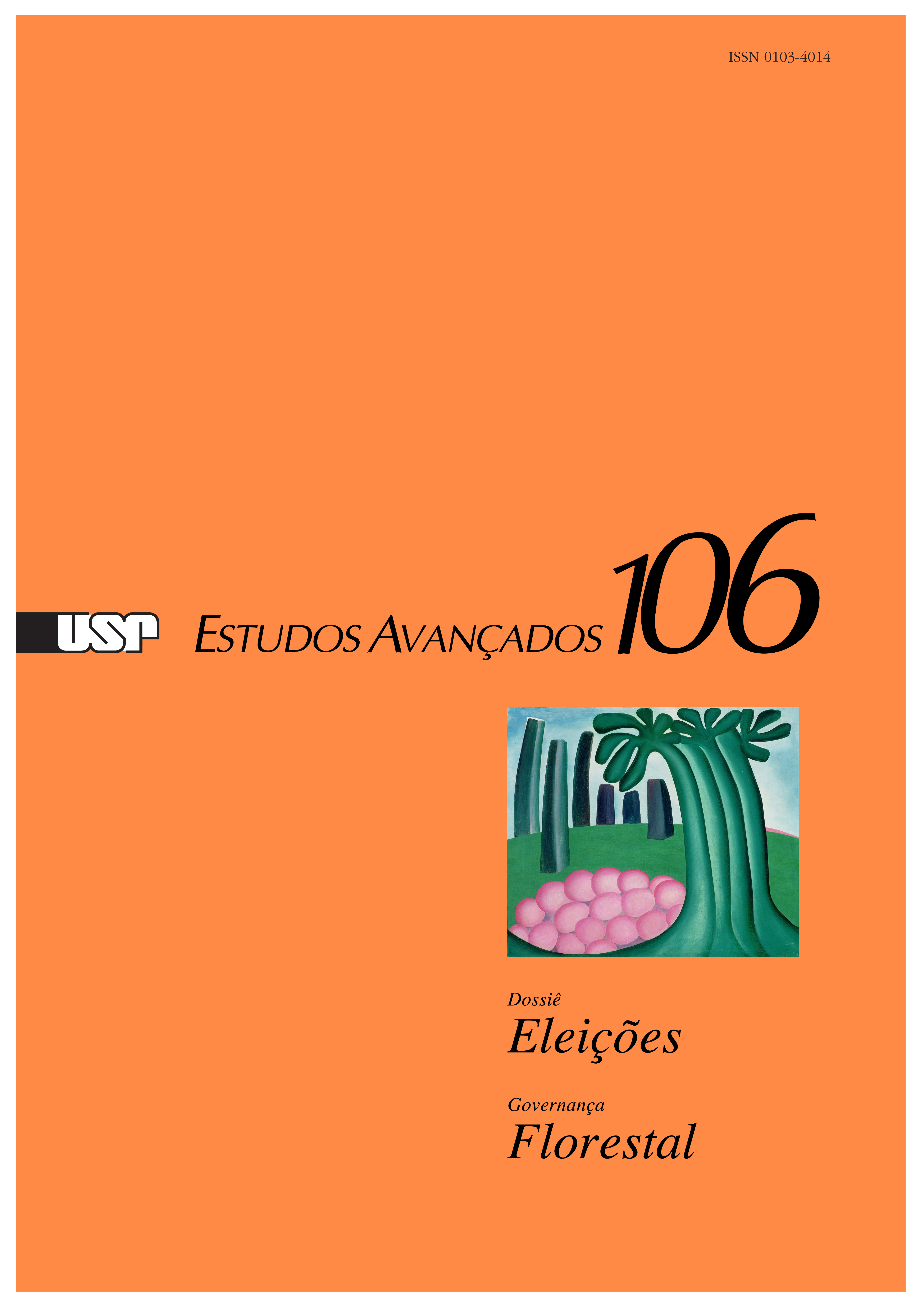Election polls in Brazil: Trends and performance
DOI:
https://doi.org/10.1590/s0103-4014.2022.36106.007Keywords:
Pesquisas eleitorais, Survey, EleiçõesAbstract
This paper compares the results of more than two thousand pre-electoral polls between 2012 and 2020 with the official electoral results in five Brazilian elections. We examine the effects of random and non-random factors, such as sample size and the time before the elections, on differences between the polls’ estimates and the ballot results. Among other findings, we show that later polls, conducted just before the election, with large samples, are better at minimizing errors. We also document that polls for presidential and gubernatorial elections and second-round elections exhibit lower error rates. Taken together, our results suggest that Brazilian pre-electoral polls perform similarly to polls conducted in other countries.
Downloads
References
BROWNBACK, A.; NOVOTNY, A. Social desirability bias and polling errors in the 2016 presidential election. Journal of Behavioral and Experimental Economics, v.74, p.38-56, 2018.
CARLSON, E. The perils of pre-election polling: Election cycles and the exacerbation of measurement error in illiberal regimes. Research & Politics, v.5, n.2, 2018.
COPPOCK, A. Did shy Trump supporters bias the 2016 polls? Evidence from a nationally-representative list experiment. Statistics, Politics and Policy, v.8, n.1, p.29-40, 2017.
CURTIN, R.; PRESSER, S.; SINGER, E. Changes in telephone survey nonresponse over the past quarter century. Public opinion quarterly, v.69, n.1, p.87-98, 2005.
EL-DASH, N. A. Avaliação metodológica das pesquisas eleitorais brasileiras. São Paulo, 2010. Tese (Doutorado em Estatística) – Instituto de Matemática e Estatística, Universidade de São Paulo.
GELMAN, A. Failure and success in political polling and election forecasting. Statistics and Public Policy, v.8, n.1, p.67-72, 2021.
GELMAN, A.; KING, G. Why are American presidential election campaign polls so variable when votes are so predictable? British Journal of Political Science, v.23, n.4, p.409-451, 1993.
GRAMACHO, W. G. À margem das margens? a precisão das pesquisas pré-eleitorais brasileiras em 2010. Opinião Pública, v.19, p.65-80, 2013.
JENNINGS, W.; WLEZIEN, C. Election polling errors across time and space. Nature Human Behaviour, v.2, n.4, p.276-83, 2018.
LUPU, N.; MICHELITCH, K. Advances in survey methods for the developing world. Annual Review of Political Science, v.21, n.1, p.195-214, 2018.
MOSTELLER, F. The pre-election polls of 1948; report to the Committee on Analysis of Pre-election Polls and Forecasts. Public Opinion Quarterly, v.12, n. 4, p. 599-622, 1949.
NUNES, M. C.; OLSÉN, Ö.; STRAUBHAAR, J. O uso de pesquisas eleitorais em decisões de voto. As eleições brasileiras de 1989. Opinião Pública, v.1, n.2, p.98-119, 1993.
PROSSER, C.; MELLON, J. The twilight of the polls? A review of trends in polling accuracy and the causes of polling misses. Government and Opposition, v.53, n.4, p.757-90, 2018.
ROTHSCHILD, D.; MALHOTRA, N. Are public opinion polls self-fulfilling prophecies? Research & Politics, v.1, n.2, 2014.
SHIRANI-MEHR, H. et al. Disentangling bias and variance in election polls. Journal of the American Statistical Association, v.113 n.522, p.607-14, 2018.
SKALABAN, A. Do the polls affect elections? Some 1980 evidence. Political Behavior, v.10, n.2, p.136-50, 1988.
SQUIRE, P. Why the 1936 Literary Digest poll failed. Public Opinion Quarterly, v.52, n.1, p.125-33, 1988.
Downloads
Published
Issue
Section
License
Copyright (c) 2022 Fernando Meireles, Guilherme Russo

This work is licensed under a Creative Commons Attribution-NonCommercial 4.0 International License.
Estudos Avançados não celebra contrato de cessão de direitos autorais com seus colaboradores, razão pela qual não detém os direitos autorais dos artigos publicados. Os interessados em reproduzir artigos publicados na revista devem necessariamente obter o consentimento do autor e atribuir devidamente os créditos ao periódico.


